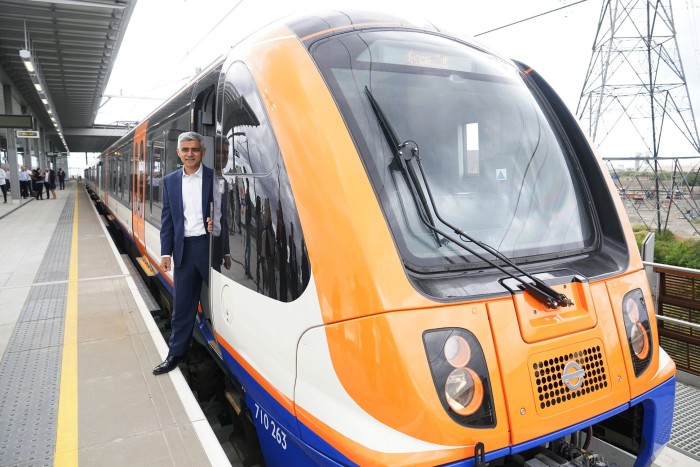
Unlock the Editor’s Digest for free
Roula Khalaf, Editor of the FT, selects her favourite stories in this weekly newsletter.
A Labour government would snub Sadiq Khan’s demand to take control of suburban rail lines in London, setting up a potential clash between the party leadership and the UK capital’s mayor.
Khan, who was re-elected to a third term for Labour this month, campaigned on the promise of a “rail revolution in London” where some suburban services would be brought into Transport for London, the city’s transport quango.
Southeastern services linking central London with Hayes, Dartford and Sevenoaks in Kent were among the lines Khan said in April that he would like to come under TfL control.
Khan said the move “would create a metro-style network that delivers genuine benefits to Londoners”, as he suggested also taking control of Great Northern services connecting Moorgate with Welwyn Garden City, Hertford and Stevenage.
But Labour officials said the main opposition party had no plans to proceed with Khan’s proposal, and that the lines would be renationalised along with the rest of the passenger railway in England under a Labour government.
Instead Louise Haigh, shadow transport secretary, would be entirely focused on what she has called the biggest rail reforms in a generation, the people added.
“Under Labour’s plans for publicly owned passenger rail, as franchises expire, they [the suburban services] would come under Great British Railways’ control,” Labour said.
TfL has long sought control of more London commuter services. The body chaired by Khan has pointed to the success of the London Overground, a suburban rail network established in 2007 and since enlarged, as proof that it can drive more passengers on to the rail network.
It is particularly focused on south London, where there are fewer London Underground stations and passengers are more reliant on the national rail network.

In a 2019 policy document, TfL said it could “create a more reliable, efficient and integrated public transport network across south London, Surrey and Kent”.
It said the current system suffered from short-term decision making, fragmentation and inefficiency, with different operators responsible for individual lines.
The push for control of commuter lines was overtaken by the pandemic, as lockdowns caused a financial crisis at TfL, but resurfaced during this year’s mayoral election campaign.
A spokesperson for Khan said: “The existing commuter rail lines in London are clearly not fit for purpose — with cancellations, delays and poor reliability. We will work closely with a Labour government to deliver a system that provides the service passengers deserve.”
The future of the suburban lines, some of the busiest in the capital, also highlights an apparent tension between Khan and Haigh’s rail policies.
TfL contracts private companies to operate all its services other than the London Underground — including the tram network, Docklands Light Railway and London Overground — under tightly specified contracts using TfL branding.
The private rail industry had lobbied Haigh to copy this so-called Overground model under Labour’s plan for English rail reform, but she chose to cut them out and produced a plan to fully renationalise the passenger railway. It was under state control until the 1990s.
If full renationalisation took place, Khan’s London would emerge as one of the last bastions of private sector involvement in the UK passenger railway, although the state would still lease trains from private operator.

